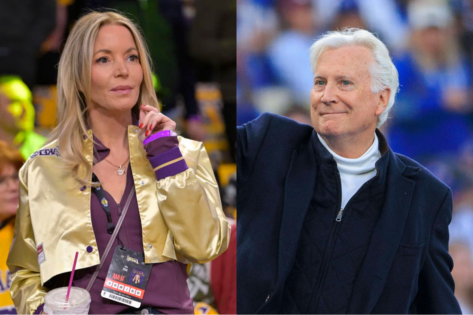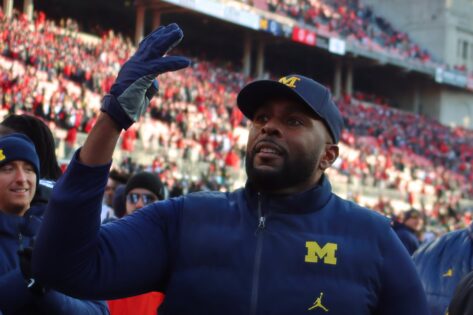“The Lakers are in great hands. He’s a winner. And Jeanie made the smartest decision for the future of the franchise.” When Magic Johnson speaks, Lakers Nation listens. And this time, his words hit a deeper nerve—not just because of who said them, but what they reveal. Jeanie Buss’ decision to sell the Los Angeles Lakers wasn’t just a business deal. It was a vision move.
Unlike many ownership transitions that prioritize revenue or real estate, Jeanie handed the reins to a proven sports operator for $10 billion. That distinction matters. To truly understand why her decision stands apart—and why it’s being hailed as a genius move—we need to look at what the Lakers didn’t do. Because across the league, two top-tier franchises have taken a very different path.
The business-first blueprint—how Dallas and Boston operate
To understand why the Lakers’ sale is so different, you first have to look at the new normal in NBA ownership. In today’s league, many franchises are run less like sports teams and more like billion-dollar corporate ventures. Two of the clearest examples? The Boston Celtics and Dallas Mavericks.
For Mavericks minority owner Mark Cuban, basketball has long been just one piece of a much larger entertainment puzzle. His decision to sell a majority stake to casino magnate Miriam Adelson in 2023 was explicitly tied to a vision that extended far beyond the hardwood: a new downtown arena, a casino complex, and a broader real estate play. Cuban was clear about his role: “They’re not basketball people. I’m not real estate people. That’s why I did it.” In other words, the future of the Mavericks wasn’t just about championships—it was about land, licensing, and long-term ROI.
That approach has only intensified under new leadership. Mavericks CEO Rick Welts openly speaks about building a “world-class entertainment district” that will host concerts, events, and more. Basketball, while still a draw, is no longer the main product—it’s part of a bundled entertainment offering. Even blockbuster trades, like sending Luka Dončić to the Lakers in exchange for Anthony Davis (and eventual cap space), were seen by many fans as business decisions disguised as basketball ones. One Dallas columnist called it “a pivot to profitability.” The outrage from fans—who protested outside the arena—spoke volumes about what they felt the team had become: a brand before a ball club.
The Celtics, while draped in championship history, operate under a similarly business-first philosophy. Their ownership group is led by venture capitalists, and their front office—helmed by Brad Stevens—has become known for its calculated, bottom-line-focused approach. The 2023 trade of beloved Marcus Smart wasn’t just about fit—it was about finances. Smart himself acknowledged the reality: “Everybody’s disappointed… but like I said, it’s a business first.” And it doesn’t stop there. With Boston facing a projected $280 million luxury tax bill in 2025, Stevens has already hinted at the possibility of moving high-salary players like Jrue Holiday or Kristaps Porziņģis to regain financial flexibility.
And that dynamic was only reinforced in 2025, when the Celtics were sold for $6.1 billion to Bill Chisholm, a private equity executive who immediately pledged to maintain “business as usual.” The message was clear: the franchise’s future will continue to balance on-court performance with off-court profitability.
Jeanie’s genius—selling to a sports guy, not a suit
This is what makes Jeanie Buss’s decision so brilliant. She didn’t just sell to the highest bidder; she sold to the right bidder. The new majority owner of the Lakers, Mark Walter, isn’t a tech mogul looking to build a casino or a venture capitalist looking to flip an asset. He’s a sports guy, through and through.
Just look at his track record. As the owner of the Los Angeles Dodgers, Walter has built a perennial powerhouse—a team with 12 straight playoff appearances and two World Series titles. He’s known for doing whatever it takes to win, from investing in cutting-edge analytics to signing megastars like Shohei Ohtani to jaw-dropping deals. But the Dodgers aren’t his only success.
Walter also co-owns the WNBA’s Los Angeles Sparks and was part of the consortium that bought Chelsea FC, one of England’s biggest football clubs. In every case, he’s shown the same blueprint: invest heavily, hire top talent, and build a winning culture. As Magic Johnson, Walter’s business partner in the Dodgers, put it: “The proof is in the pudding on what he’s been able to accomplish.” Walter wins. Period.
Magic also pointed out that Walter’s values fit the Lakers perfectly: winning, excellence, and the resources to chase both. That’s a massive departure from the “business-first” trend dominating NBA ownership today. Walter isn’t here to turn the Lakers into a real estate project. He’s here to raise banners.
And that’s the genius of Jeanie’s move. She solved a structural problem that had been quietly threatening the Lakers for years. For decades, the family was insulated by a massive local TV deal—the kind that gave them big-market leverage without needing billionaire backing. But that model is dying. Streaming’s up, cable’s collapsing, and regional sports networks are on the edge. The moment that money dries up, a family-run team can’t keep pace with deep-pocketed competitors. Jeanie saw the writing on the wall—and made sure the Lakers wouldn’t get left behind.
Dec 18, 2017; Los Angeles, CA, USA; Lakers team executives Earvin “Magic” Johnson, Jeannie Buss and Rob Pelinka pose with Kobe Bryant during a halftime ceremony retiring Bryant’s uniform numbers at Staples Center. Mandatory Credit: Robert Hanashiro-USA TODAY Sports
She also knew the team couldn’t keep running like a mom-and-pop shop. Six owners, limited cash flow, and rising payrolls? That’s not a formula for sustained dominance. Enter Mark Walter. Not only did he bring unmatched resources, but he already owned a big stake in the team, making him the natural successor. And he didn’t come in to tear things down. He agreed to keep Jeanie in place as team governor—a gesture that preserved the family legacy while upgrading the machinery.
What comes next for the Lakers
But this isn’t just about money. It’s about how the franchise will actually function. For decades, the Lakers prided themselves on running lean—tight front office, tight inner circle. But those days are over. As Adam Kamenetzky bluntly put it: “Five years from now… the Lakers will not have a three-person basketball ops department.” And he’s right.
Walter’s blueprint is already becoming visible. With the Dodgers, he didn’t just make one flashy hire—he built a whole machine. Hired Andrew Friedman. Built a best-in-class analytics and scouting department. Poured money into infrastructure, development, and long-term winning. The results speak for themselves.
Now, that same model is coming to the Lakers. Front office? Expect expansion. Analytics? Expect serious investment. Facilities, staff, player development? Expect major upgrades. As the Kamenetzky brothers noted, Walter isn’t here to maintain the old way—he’s here to modernize it completely. And if Rob Pelinka, for all his past successes, can’t thrive in a more collaborative, scaled-up structure? He won’t last. “Rob has been very successful at continually consolidating and shielding his power,” Andy Kamenetzky said. “I’d be stunned if that remains a constant moving forward.”
For players like Luka Dončić, this is great news. Walter’s approach means more resources, more support, and a better-built team around him. From advanced medical staff to smarter player development systems and high-level roster construction, the entire ecosystem will be designed to help stars like Luka compete at the highest level—every year, not just in flashes.
The post Unlike Mavericks and Celtics, Why Jeanie Buss’ Decision to Sell the Lakers Is a Genius One appeared first on EssentiallySports.



